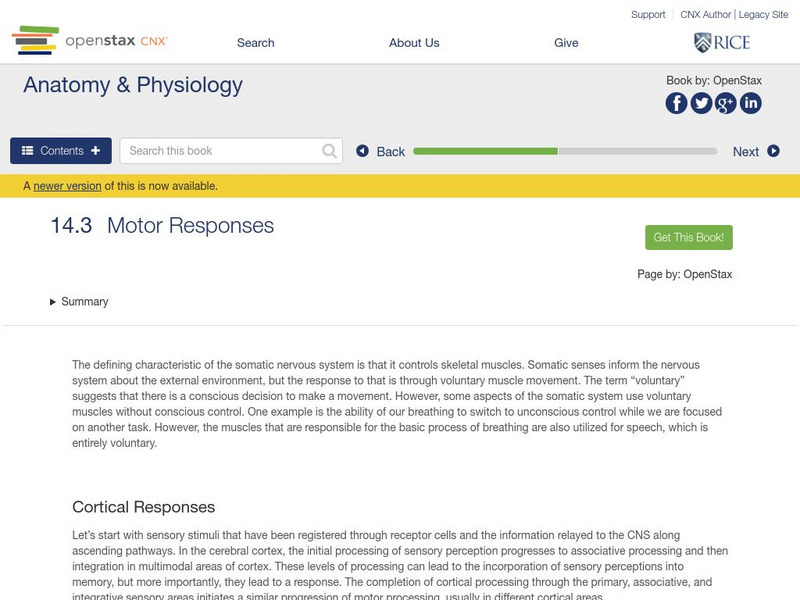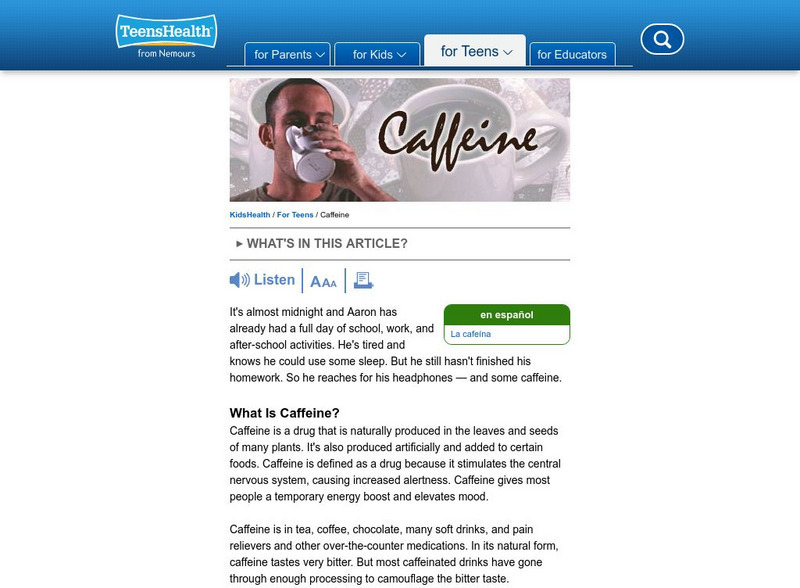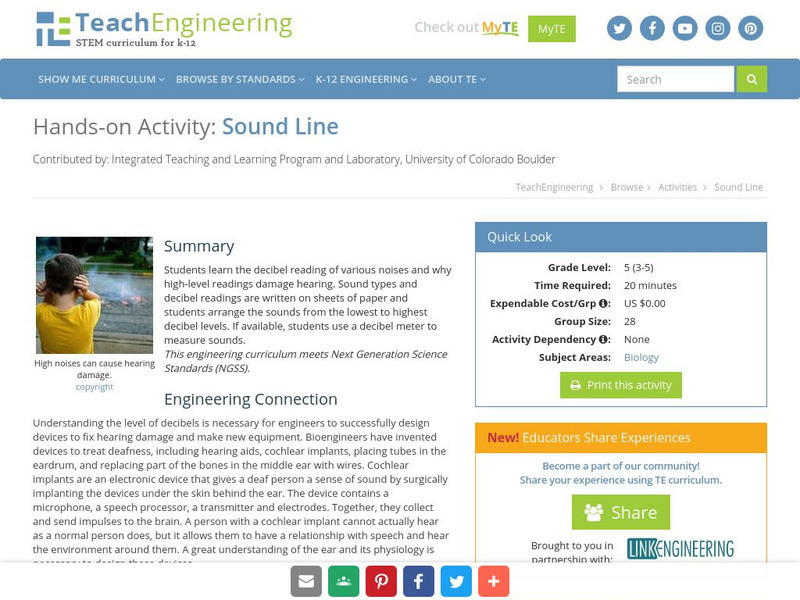Hi, what do you want to do?
Wikimedia
Wikipedia: Hypothalamus
This site from the encyclopedia, Wikipedia, provides a brief open-source encyclopedic explanation of what the hypothalamus is and what its functions are. Links are provided throughout this paragraph along with a picture showing where the...
CK-12 Foundation
Ck 12: Biology: Invertebrate Characteristics
[Free Registration/Login may be required to access all resource tools.] Covers characteristics of invertebrates.
McGraw Hill
Glencoe: Biology: The Animal Body and Principles of Regulation Pretest
Students have the opportunity to take this five question pretest to assess their knowledge of the principles of regulation in the human body.
University of Washington
Neuroscience for Kids: Discovering the Sweet Mysteries of Chocolate
Read about the history of chocolate and why we crave it.
US Department of Justice
U.s. Drug Enforcement Administration: Benzodiazepines [Pdf]
Learn about the effects of drugs in the benzodiazepine family, names of the drugs and their intended uses, and how the drugs are abused by adolescents.
University of Oxford (UK)
Oxford University: The Structure of the Brain
This report is entitled "The Structure of the Brain." Scroll down to section 3.2.3 for more on brain anatomy.
University of Washington
University of Washington: Barbiturates
The University of Washington provides this great resource for students of all ages wanting to learn about barbiturates and the effects they have on the body and brain. Read about how these often-misused depressants can cause addiction,...
TED Talks
Ted: Ted Ed: The Cockroach Beatbox
Neuroscientist, Greg Gage, takes an unusual approach to showing how legs respond when brains receive and deliver electric impulses by dissecting a cockroach live on stage. [6:16]
Wikimedia
Wikipedia: Slime Mold
Wikipedia provides several paragraphs of information on slime molds, members of the Protista kingdom. Includes image.
Other
University of Scranton: The Sheep Brain Dissection Guide
This resource provides a guide to dissecting sheep brains. The guide goes through the process step by step. An image of the brain being dissected is shown with dissection instrutions or details on the particular structure on each page.
National Institutes of Health
National Library of Medicine: Electricity, Frankenstein, & the Spark of Life
Using an online exhibition, investigate how Mary Shelley's horror science fiction story, Frankenstein, reflects the knowledge and studies of electricity, and how those fictional ideas are used in modern medicine.
Other
Society for Neuroscience: Brain Facts [Pdf]
This is a publication on the human brain and how it works. Gives details on the neuron, how the senses interact with the brain and much more. PDF (requires Adobe Reader).
National Institutes of Health
Nih Curriculum Supplement for Middle School: The Brain: Our Sense of Self
Through scientific inquiry this module introduces many concepts about the brain, its functions, and its importance in the sense of self. Included are a teacher's guide, interactive student web activities, and resources.
Frontiers Media
Frontiers: Going to School to Sculpt the Brain
When I was a kid, I thought of going to school as an obligation imposed by my parents, and I guess many kids feel the same. My father used to say, "you need to study hard to build a better future for yourself," but I think that if my...
PBS
Pbs Teachers: Changing Your Mind: Increasing Brainpower
Investigate the brain and it's connections - the number of possible routes along which a brain message might travel - by solving and creating geometric progressions. Conduct an experiment to learn about stimulus and response.
PBS
Pbs Teachers: Scientific American: The Wonder Pill: Placebo 1
Investigate how the brain can be fooled into incorrectly processing sensory information. Conduct an experiment to fool someone into thinking you've touched his or her hand.
PBS
Pbs Teachers: Scientific American: The Wonder Pill: Placebo 2
Identify the physiology of how a placebo affects the brain through "ritual expectations." Perform an experiment to explore how the manner in which a ritual is presented may affect the outcome of its success.
Mayo Clinic
Mayo Clinic
A comprehensive resource for timely and accurate medical information from experts at Mayo Clinic. Content includes information on almost all diseases and conditions, a guide to healthy living, first-aid and self-care information.
National Geographic Kids
National Geographic Kids: Quiz Whiz: The Brain
Take this interactive, ten-question quiz about the human brain. Read facts about this important organ after each questions is answered, and then get your score.
Other
Posit Science: The Brain 101
Learn about the structure of the human brain with this interactive diagram. Also, find out about neurons, message transmission, and other factors that affect brain function.
Famous Scientists
Famous Scientists: Charles Sherrington
Learn about Charles Sherrington, the Nobel Prize winner in Physiology or Medicine for his work on the functions of neurons.
OpenStax
Open Stax: Anatomy & Physiology: Motor Responses
Students learn the structure and function of the descending pathways of the motor commands from the cortex to the skeletal muscles.
Curated OER
Kids Health: Caffeine
Has caffeine ever given you the jitters? Find out why. Also learn about many other effects that caffeine can have on your body. This article from Family Doctor includes a chart that lists how much caffeine different beverages contain....
TeachEngineering
Teach Engineering: Sound Line
Students learn the decibel reading of various noises and why high-level readings damage hearing. Sound types and decibel readings are written on sheets of paper, and students arrange the sounds from the lowest to highest decibel levels....
Other popular searches
- Human Biology Nervous System
- Central Nervous System
- Human Nervous System
- The Nervous System
- Nervous System Crossword
- Nervous System Activities
- Peripheral Nervous System
- Nervous System Experiments
- Brain and Nervous System
- Nervous System Lesson Plan
- Nervous System in Humans
- Nervous System Word Search









![U.s. Drug Enforcement Administration: Benzodiazepines [Pdf] Handout U.s. Drug Enforcement Administration: Benzodiazepines [Pdf] Handout](https://static.lp.lexp.cloud/images/attachment_defaults/resource/large/FPO-knovation.png)
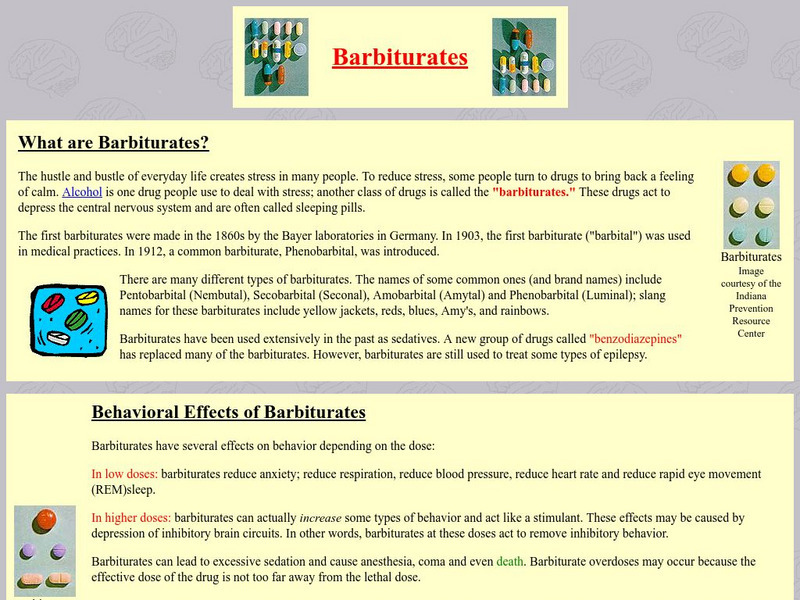


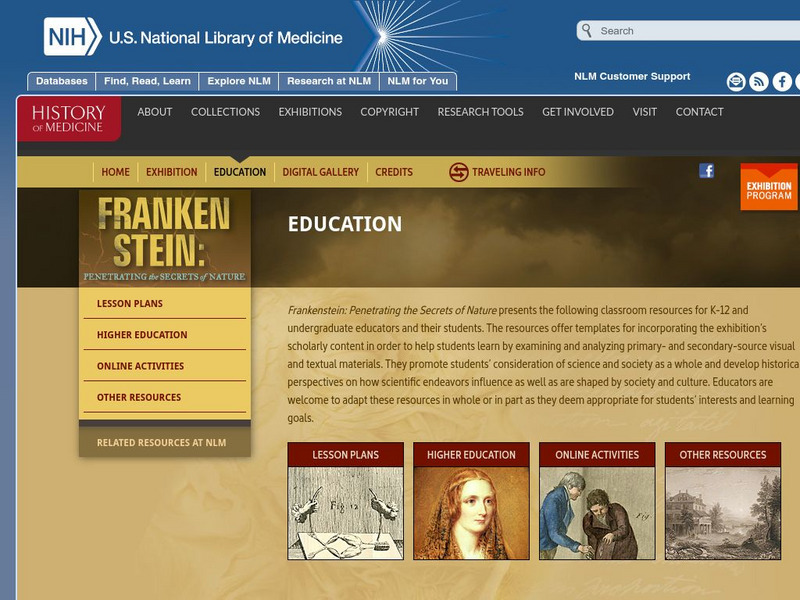
![Society for Neuroscience: Brain Facts [Pdf] Activity Society for Neuroscience: Brain Facts [Pdf] Activity](https://content.lessonplanet.com/knovation/original/113866-cd2169bec6c0105fc678c671521bd642.jpg?1661266885)






